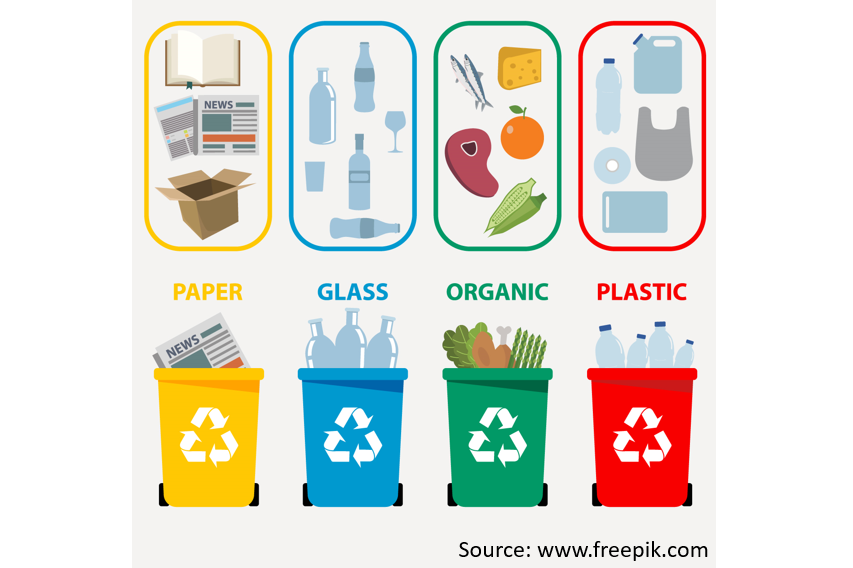Sorting and processing of solid waste

Not all waste can be prevented, repaired and reused. Sorting and recycling your municipal solid waste (MSW) is a simple environmental gesture that can additionally win the approval of your customers. You should strive to recycle as much waste as possible, depending on the capacity of your city/region. A hotel guest generates about 1 kg of garbage per night, with more than half of this volume coming from paper, plastic and cardboard. In addition to the negative impact on the environment, the cost of waste disposal is becoming more expensive, and this trend will continue in the future.
To optimize the recycling of municipal solid waste, the following steps should be taken:
- Identify the most common types of waste generated by guests during their stay and prepare a waste management plan.
- Work with your local waste disposal company to research all types of waste that are suitable for recycling.
- Let staff and guests know about your management plan, what types of waste you sort and recycle, and how they can get involved in the process.
- To save space, you can include two types of trash cans, one for general waste and one for recycling. The maintenance staff can then sort the recyclable waste.
In the table below, we present recycling options for various waste streams. They depend on local conditions and should be studied with the local waste management operator.
Table 7. Waste types and disposal options.
| Material | Recyclable |
| Meat and fish | Send for anaerobic digestion or composting. Or to a local pig farm for feed (if allowed by law). It is possible to organize composting on the territory of the enterprise using special composter containers. |
| Other organic waste | Send for anaerobic digestion (with biogas production) or composting. Or to a local farm for livestock feed. It is possible to organize composting on the territory of the enterprise using special composter containers. |
| garden greenery | Compost on site, shred and use as mulch or compost to other households/farms. |
| Used frying oil | Catering establishments are prohibited from dumping used cooking fat down the drain. If possible, send used oil for processing, such as biodiesel or industrial oils. Waste oil is used on the farm to protect metal from corrosion, impregnate wood from decay, as a solvent, to lubricate door hinges, and parts of mechanisms. With the help of waste fat, it is easier to make a fire. Large volumes can be burned in a mining stove, heating the room. |
| Cork products | Send for the manufacture of insulation, tiles, boards, soil mulch. |
| Aluminum cans and foil | Submit for recycling. |
| Glass | Recycle bottles where possible and send remaining glass fractions to be crushed and recycled into new glass products. |
| Paper and card | Divide into fractions (low grade and high grade) according to the instructions of the collectors and send for processing. |
| plastics | Send for recycling into new plastic products by melting, remolding or shredding. Depends on the types of plastic. |
| Other packaging | Choose new suppliers who are committed to reducing packaging waste and are ready to use reusable packaging, or negotiate with existing suppliers on ways to reduce packaging waste and switch to reusable packaging. |
| Appliances | Return to supplier for recycling and disposal. |
| Chemistry and pharmaceuticals | Return to supplier or send to specialized contractor. |
| Batteries and lighting | Return to supplier or send to specialized contractor. |
| Engine oils | Send to collection points that buy used oil from the public. |
Source: JRC, Best Practices for Environmental Management in Tourism.
